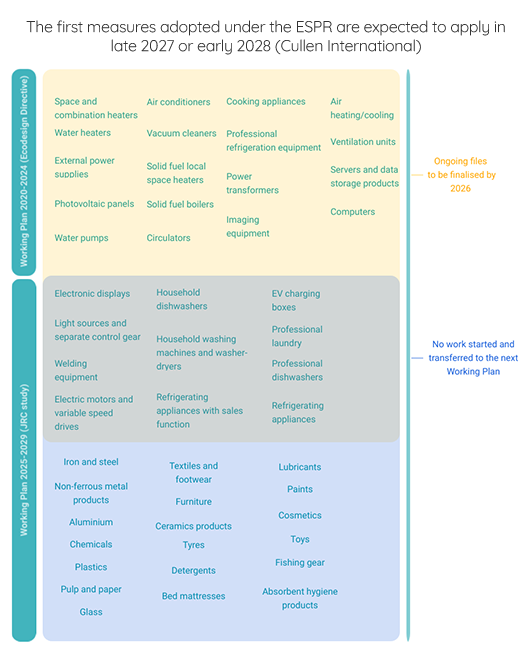Despite the entering into force of the new Ecodesign for Sustainable Products Regulation (ESPR) on 18 July 2024, work will continue under the now replaced Ecodesign Directive until the end of 2026.
The European Commission clarified during a May workshop and, in September 2024 through the publication of a frequently asked questions (FAQ) document, how the transition between the two legal instruments will work.
The ecodesign requirements already adopted under the Ecodesign Directive will remain in force until repealed. These measures can still be amended until 2030.
Those ecodesign requirements for which work is still on-going under the Ecodesign Directive must be finalised by the end of 2026 under the legal framework of the old directive.
The first ecodesign measures to be developed under the ESPR will be set out in a new working plan expected to be agreed in 2025, with the first measures expected to apply from late 2027.

Click here to read our full analysis:
Clients of our Sustainability service can read the full report via this link:
more news
19 December 25
CSRD transposition: Belgium, Denmark, Finland and Slovenia transpose the “stop-the-clock” directive
Cullen International’s updated benchmark tracks the progress made by the 27 EU member states in transposing the CSRD and the related “stop-the-clock” directive.
19 December 25
Global trends in AI regulation
Our latest Global Trends benchmark compares policies and regulations on artificial intelligence (AI) across 14 jurisdictions around the world.
19 December 25
Implementation of European Media Freedom Act: general overview in 12 EU member states
Our new Media benchmark shows if there are initiatives/rules in the selected countries which aim to put into application the EU Media Freedom Act (EMFA). If yes, it describes the scope of the main measures proposed. The benchmark also provides information on the next legislative or regulatory steps.